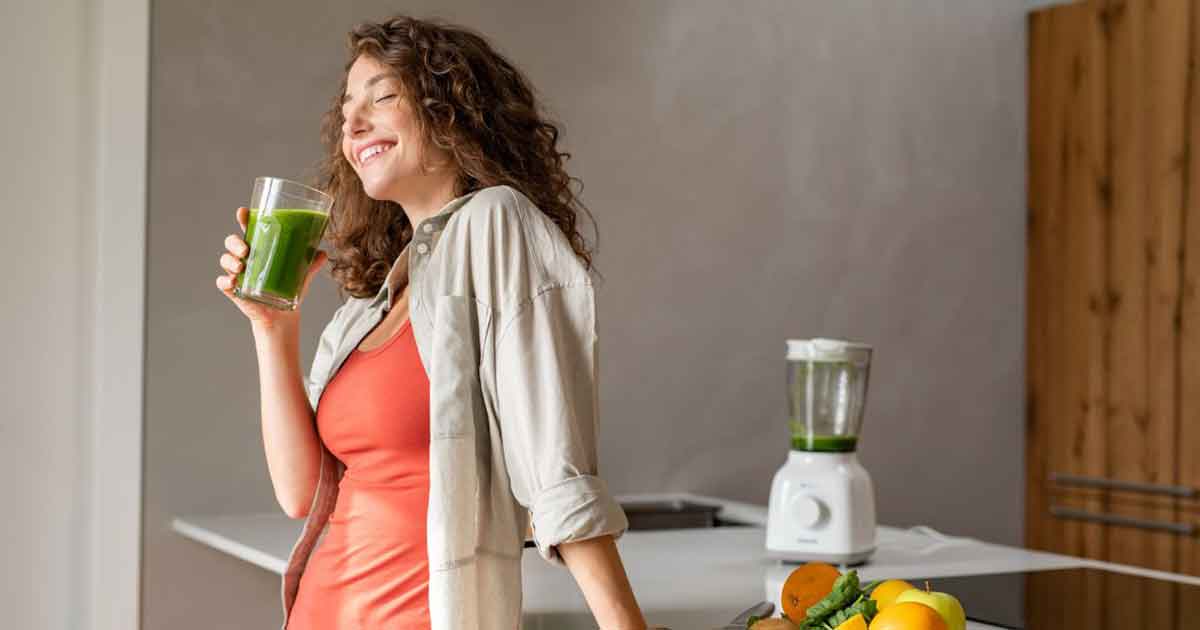True Cellular Formulas Team - Jan 10, 2023
Are There Microplastics In Your Tea Bags?

Whether you’re drinking tea for the many health benefits or simply because you like the taste, there’s something you have to know— your tea bags might be contaminated with microplastics. The good news is that not all tea bags are toxic, and this article will tell you everything you need to know about which teas to avoid and what you can do if you’ve already been exposed.
The Dangers of Microplastics
Microplastics are fragments of any type of plastic less than 5 mm in length.[1] Some microplastics have broken off from a larger plastic-based product (like a water bottle or tire). In contrast, others were naturally small, to begin with (like tiny pieces of polyethylene plastic added to health and beauty products called microbeads).
Unsurprisingly, exposing your body to the endocrine-disrupting chemicals in plastics can lead to a cascade of health problems, including reproductive, growth, and cognitive impairment, neurodevelopment disorders, oxidative stress, DNA damage, and inflammation.[2-3]
Chronic inflammation occurs when the exposure to things that inflammatory response is constant. As a result, something that may seem like a benign exposure to stress ends up causing enormous health consequences.[4] When it comes to microplastic exposure in tea, it might not matter if you only drink tea a couple of times per year; but the reality is that most tea drinkers drink it daily, and this form of stress is only one of many chronic stressors throughout the day.
Adding unnecessary exposure to plastics daily in your tea is a stress you simply cannot afford when pursuing vibrant health.
Plastic in Your Tea
There is an increase in alarming research that highlights the leaching of microplastic into tea from tea bags.[5] There are two main ways plastics are making their way into your tea: from plastic-based glue to seal paper bags and from actual plastic-based tea bags.
In the same way that hot water helps extract the compounds from tea leaves, it does the same for any plastic-based materials used in the tea bags. This microplastic leaching can lead to billions of microplastics in your cup of tea. For example, steeping a single plastic teabag at brewing temperature (95 °C) releases approximately 11.6 billion microplastics and 3.1 billion nanoplastics into a single cup.[6]
Many of the most popular brands are guilty of using either plastic tea bags or plastic-based glue in their paper bags. Some of the brands you may recognize that you must avoid include:
- Rishi
- Jade Leaf
- Shangri La
- Lullaby
- Tea Forte
- ASDA
- Aldi own brand
- Asda own brand
- Lidl own brand (1-2% of non-biodegradable polymers present in 2021)
- Tesco own brand
- Twinings: 3 Organic blends
- Waitrose own brand of decaf
- Marks & Spencer
- Morissons
- Tetley
- Waitrose
- Tazo
- Teavana (Starbucks)
- Celestial Seasonings
- Mighty Leaf Teas
Not all tea companies are on the naughty list, and many companies that were previously using tea bags with plastics are vowing to make big changes. Some of the safer companies include: *
- Abel & Cole own brand
- Clipper
- Co-op own brand 99
- PG Tips
- Pukka Herbs
- Sainsbury's own brand
- Teapigs
- Twinings: Organic Pure Camomile, Organic Pure Peppermint & Organic Fairtrade English Breakfast
- Waitrose own-brand caffeinated tea bags
- Organic India
- Bird & Blend Tea
- Brew Tea
- Eteaket
- Good & Proper
- Hampstead Tea
- Neal's Yard
- Nemi
- PG Tops
- Roqberry
- Suki Tea
- T2
- Tick Tock Tea
- Twist Teas
- Yorkshire Tea
- Traditional Medicinals
- Numi Teas
- Republic of Tea
- Stash
- Yogi Tea
What Do I Do About it?
Swap to Plastic-Free Tea Bags or
Reusable Pods with Loose Leaf Tea
The first step to solving the microplastic problem in tea bags is to stop consuming tea bags that contain plastic parts. This doesn’t mean you have to stop drinking tea. Investing in tea bags that contain no plastic won’t cost you anymore, and if it does, it will be worth the toxicity you’re saving. Consider some of the abovementioned brands, or investigate your favorite brands wherever you buy tea.
Although most people consume tea from tea bags, there is also the option to go loose leaf. Organic loose-leaf tea is less expensive than individual tea bags, and you can steep the herbs directly in hot water or use a stainless-steel reusable tea bag.
Detox
If you’ve been drinking plastic-containing tea for a while, you’re probably due for a microplastic detox. Detoxification involves ensuring your elimination pathways are functioning properly. The biggest problem is chronic low-grade exposure.
Some ways to support your body in getting rid of plastics include:
- Sweat (exercise, sauna)
- Drink enough water
- Make sure you’re eliminating once or twice a day
- Make sure you’re filtering your water
Supplements

CytoDetox®
In nature, clinoptilolite zeolites are natural minerals formed by fossilized volcanic ash and seawater. With molecular clinoptilolite fragments small enough to penetrate cells and the blood-brain barrier, CytoDetox supports the body's natural detoxification process.
With CytoDetox, you can reduce the impact of past contaminants in your body, like heavy metals. It also ensures that as you continue to expose yourself to new toxic stressors, the proverbial rain bucket is being emptied.
Toxic substances cannot be avoided in all their forms. We must accept that living in a modern world means being exposed to the stress of toxins. Fortunately, we can help our bodies detoxify by supporting their pathways.

TrueCarbonCleanse®
TrueCarbonCleanse® formula contains highly specialized highly activated carbon, powerful humates (humic and fulvic acids), CleanoptiliteTM (Clinoptilolite - Zeolite Crystals), and other gut detoxifiers. No other formula has ever achieved this level of effectiveness.
TrueCarbonCleanse supports your body's natural removal of pro-inflammatory and body-impacting toxins we are exposed to from the air, water, plastics, heavy metals, chemicals, and more OUT of your cells and body. TrueCarbonCleanse serves as a master drainage gut detoxifying formula that attracts toxins released in the colon and prevents them from reabsorbing back into the body, aka RETOXIFICATION! The proprietary matrix of powerful and diverse binders ATTACH to the toxins so they can’t be reabsorbed back into the body, causing the "retox effect"...
... instead, they are gently escorted out of the body permanently so the body can thrive naturally without this toxic interference.
Besides the ultra-pure and potent activated charcoal that absorbs up to 300 times its weight in toxins, the specialized, powerful humates (humic and fulvic acids) - are for additional detox and remineralization support.

Liver Support
As one of the key organs involved in detoxification, ensuring your liver is well supported is important regarding the constant exposure to toxins of the modern world. True Cellular Formulas® Liver Support contains over 20 active ingredients that support liver repair, health, and function. The liver plays a vital role in the metabolic and detoxification processes of the body. Our Liver Support is formulated with antioxidants and nutrients from plant sources such as milk thistle, beetroot, artichokes, and dandelions to support your liver health and cleansing.
Summary
Many commonly consumed teas worldwide are exposing our bodies to unnecessary microplastics. Due to the use of plastic bags or paper bags sealed with plastic-based glue, these plastics leach into the tea in the same way the tea leaves seep in and flavor your water. Swap to plastic-free tea bags or reusable pods with loose-leaf tea, and sweat out the old BPA and other plastic compounds.
- US Department of Commerce, National Oceanic, and Atmospheric Administration. “What Are Microplastics?” NOAA's National Ocean Service, 13 Apr. 2016, oceanservice.noaa.gov/facts/microplastics.html.
- “Health Effects of Microplastics & Pathogens.” Plastic Health Coalition, 2 Mar. 2022, www.plastichealthcoalition.org/microplastics/.
- “Plastics and Human Health: Plastics and the Environment Series.” Geneva Environment Network, www.genevaenvironmentnetwork.org/resources/updates/plastics-and-health/.
- “Chronic Pain: What Is It, Causes, Symptoms & Treatment.” Cleveland Clinic, my.clevelandclinic.org/health/diseases/4798-chronic-pain.
- “Some Plastic with Your Tea?” McGill University Newsroom, 31 Jan. 2020, www.mcgill.ca/newsroom/channels/news/some-plastic-your-tea-300919.
- Hernandez, Laura M., et al. “Plastic Teabags Release Billions of Microparticles and Nanoparticles into Tea.” Environmental Science & Technology, vol. 53, no. 21, 2019, pp. 12300–12310., doi:10.1021/acs.est.9b02540.



